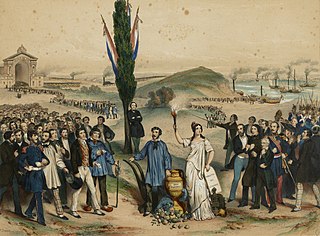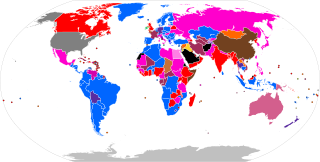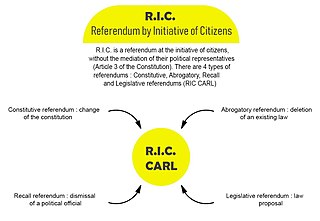This article has multiple issues. Please help improve it or discuss these issues on the talk page . (Learn how and when to remove these template messages) (Learn how and when to remove this template message)
|
Popular consultations or popular suffrages in constitutional law and history are public deliberation by the people making decisions as electoral body and as legislator, taken in the exercise of a form of political participation. When the people are deciding in a direct manner over what is submitted for a popular consultation, both the bodies of the State and the citizens are exercising a form of direct democracy.

Suffrage, political franchise, or simply franchise is the right to vote in public, political elections. In some languages, and occasionally in English, the right to vote is called active suffrage, as distinct from passive suffrage, which is the right to stand for election. The combination of active and passive suffrage is sometimes called full suffrage.

Constitutional law is a body of law which defines the role, powers, and structure of different entities within a state, namely, the executive, the parliament or legislature, and the judiciary; as well as the basic rights of citizens and, in federal countries such as the United States and Canada, the relationship between the central government and state, provincial, or territorial governments.
A people is a plurality of persons considered as a whole, as is the case with an ethnic group or nation, but that is distinct from a nation which is more abstract, and more overtly political. Collectively, for example, the contemporary Frisians and Danes are two related Germanic peoples, while various Middle Eastern ethnic groups are often linguistically categorized as Semitic peoples.
Contents
In such way popular consultations taken place as parenthesis of representative democracy, only in countries where the constitutional law recognize popular sovereignty.

Representative democracy is a type of democracy founded on the principle of elected officials representing a group of people, as opposed to direct democracy. Nearly all modern Western-style democracies are types of representative democracies; for example, the United Kingdom is a constitutional monarchy, France is a unitary state, and the United States is a federal republic.
Popular sovereignty, or sovereignty of the peoples' rule, is the principle that the authority of a state and its government are created and sustained by the consent of its people, through their elected representatives, who is the source of all political power. It is closely associated with social contract philosophers such as Thomas Hobbes, John Locke and Jean-Jacques Rousseau. Popular sovereignty expresses a concept and does not necessarily reflect or describe a political reality. The people have the final say in government decisions. Benjamin Franklin expressed the concept when he wrote, "In free governments, the rulers are the servants and the people their superiors and sovereigns".
There are different types of popular political consultations according to what is established in the political constitution of every country.
A political constitution is a constitution where the legislature is the main check upon executive power. It can be contrasted to a legal constitution, where it is the judiciary which provides the greater checks upon government. In many countries both political and legal checks will be used to control the government.








